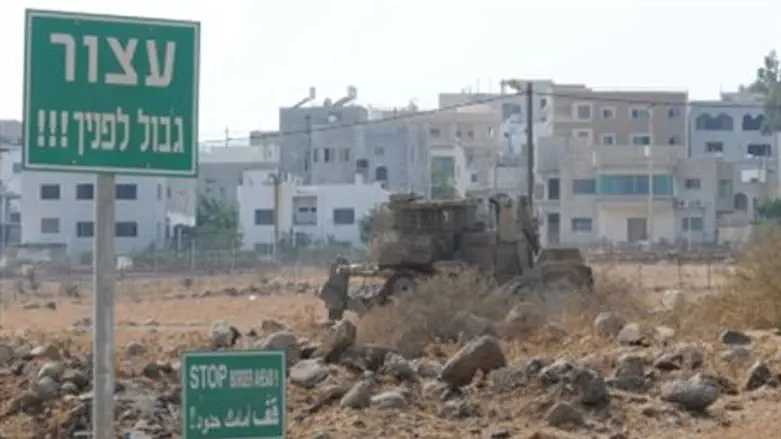
Vice Prime Minister Moshe Ya'alon said at week's end that in any future agreement with Lebanon, the residents of the disputed village of Rajar (sometimes spelled Ghajar), which is situated atop the Israeli-Lebanese border, will remain Israeli citizens. Ya'alon expressed the commitment before Deputy Minister for Development of the Negev and Galilee, Ayoub Kara.
The statement was made following reports in the press that Prime Minister Binyamin Netanyahu is about to inform the United States of Israel's intention to formally hand over the northern half of the village to Lebanon.
Ya'alon and Kara, both of whom are from the ruling Likud party, toured the village together Thursday. “The village's inhabitants will remain citizens of Israel in any diplomatic arrangement and if Lebanese agreement is received, there will be a UN presence in the northern half of the village,” Ya'alon said.
The village was Syrian until 1967, when Israel's conquest of the Golan Heights cut it off from Syria and turned it into a no-man's land, and effectively a Lebanese village. In Israel's Litani Operation in 1978 it came under Israeli control, and in 1981 it was formally annexed by the Golan Law. The villagers, who adhere to the Alawite religion, became prosperous as a result of gaining Israeli citizenship and the village began growing and spreading northward.
Israel's retreat from Lebanon in 2000 effectively cut the village in half, leaving residents of the northern part – which is inside Lebanese territory – in limbo. Lebanon does not enforce its sovereignty there, and there is some Hizbullah presence in the village. The open border between the two parts of the village has also made it attractive for smugglers of weapons and drugs.
The residents of Rajar informed Kara that they intend to appeal to the International Court in Hague against any decision to apply Lebanese sovereignty to the northern part of their village. Ya'alon asked the villagers to hold off with their appeal because the Lebanese government has yet to express any form of agreement to the move.